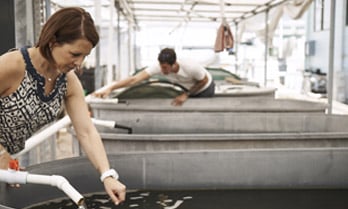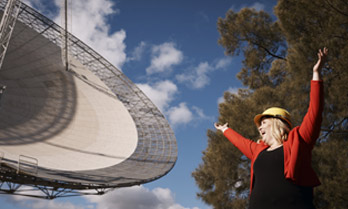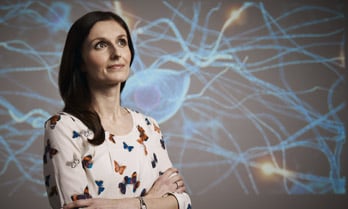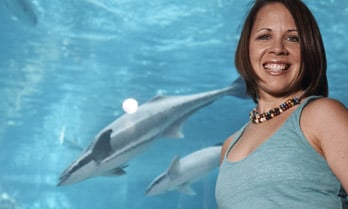







29 November 2023
Finding the balance: post polar ice sheet retreat
Home-schooling through correspondence, on a nature reserve from the age of three, Georgia nurtured a love of learning and nature from a young age. Instructed by her mum, Georgia was always encouraged to ask every and any question, big or small. At the age of eight, Georgia returned to a small town in Northland, where she had to learn to conform to the rules and structure of a more traditional education system.
Leaving school Georgia began an undergraduate degree in Architecture but quickly realised, upon reflection of her childhood, that she was more interested in the world around her, the bigger picture and the future of the planet. Finding a class to study the Earth’s climate history at university was her lightbulb moment and catalyst to move into a field that nurtured her passion for the natural world, and allowed her to question and research theories of climate change. Georgia’s innate curiosity for the world around her and her appetite to continuously learn has led to her to become a leading Geologist.
“Studying Geology at university I was immediately taken by the lesson in Earth’s history and how it came to be the world we know today. I loved the patterns and cycles that are imprinted on the chaos of time and change, particularly in regard to climate and the climate system,” said Dr Grant.
Dr Grant’s Ph.D explored climate cycles that took place between roughly two and three million years ago by analysing marine mud from the Whanganui Basin, to reconstruct the timing and magnitude of sea-level changes in response to ice sheet variability. These changes occurred because atmospheric carbon dioxide was at similar levels to today and the Earth was as warm as it will be in the coming decades.
Dr Grant’s climate research is ongoing in her current role at GNS Science, from sea surface temperature reconstruction three million years ago across the Tasman Sea to analysing sand particle size and distribution in the Hokianga Harbour to understand how the recent evolving landscape changes sediment input to the harbour.
Just recently, Dr. Grant took part in an ocean expedition offshore Greenland with the International Ocean Discovery Program to investigate how the Antarctic and Greenland ice sheets act to change sea-level in the past. Dr Georgia Grant’s ongoing contribution to science, specifically climate cycles, is actively contributing to a healthier future for New Zealand.